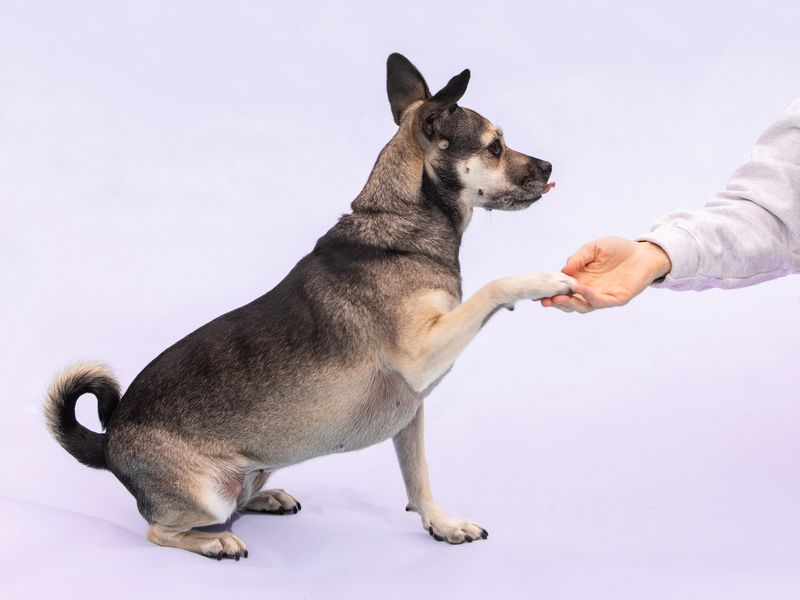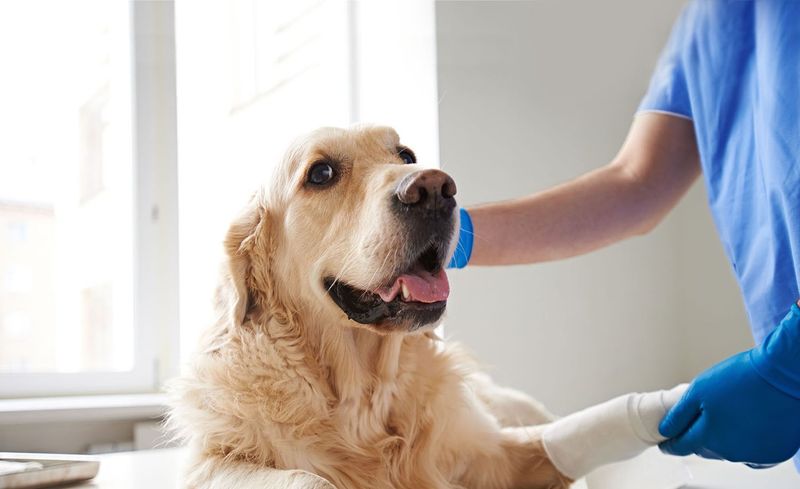Owning a dog can be one of the most rewarding experiences, but it comes with responsibilities that lazy people might find challenging. This post explores hard truths about dog ownership, offering insights that are crucial to consider before welcoming a furry friend into your home.
1. Constant Exercise Needs

Dogs, regardless of breed, require regular exercise to maintain their physical and mental health. Lazy individuals may find it challenging to meet these needs, as it’s not just about a quick walk around the block.
Most dogs need at least 30 minutes to two hours of exercise each day, depending on their breed and age. This could mean brisk walks, playful fetch sessions, or even agility training classes. A lack of exercise can lead to obesity, behavioral issues, and other health problems in dogs.
Furthermore, exercise routines need to be consistent, rain or shine, which might be daunting for those who prefer staying indoors. Before committing, consider if you can genuinely incorporate this lifestyle change. It’s not just about the dog’s health, but yours too.
Regular exercise with your dog can lead to a healthier lifestyle for you as well. If exercise sounds like a chore, dog ownership might not be the right fit.
2. Grooming And Cleaning

Dog grooming is an essential part of maintaining a healthy pet, and it’s more than just a monthly bath. Many breeds require regular brushing to keep their coats tangle-free and to reduce shedding. Lazy pet owners might underestimate the time and effort needed to keep a dog looking and feeling its best.
Besides grooming, cleaning up after a dog can be a daily task. Dogs shed hair, track mud, and occasionally have accidents, which means constant vigilance and frequent cleaning. A tidy home requires sweeping, vacuuming, and wiping surfaces more often than you might prefer.
Consider if you’re ready to commit to the grooming and cleaning routine. Some breeds are more high-maintenance than others, demanding regular trims and baths. If cleanliness and order are priorities for you, a dog’s grooming and cleaning needs might be more work than anticipated.
3. Training Commitment

Training a dog is not a one-time task but an ongoing commitment that requires patience and consistency. Lazy people might struggle with this aspect, as it demands daily attention and practice. Without proper training, dogs can develop unwanted behaviors like jumping, barking excessively, or even aggression.
Early training involves teaching basic commands like sit, stay, and come. As your dog grows, continuous reinforcement and possibly more advanced training will be necessary to ensure good behavior. This doesn’t just involve time but also understanding how dogs learn and adjusting techniques as needed.
If you are not willing to put in the effort and time to train your dog properly, you might end up with a pet that’s difficult to control. Consider if you have the patience and dedication for training, as it’s crucial for a harmonious living environment.
4. Veterinary Visits

Regular veterinary visits are critical to a dog’s health and well-being, yet they can be time-consuming and sometimes costly. Lazy folks might not appreciate the frequency of these visits, which include vaccinations, check-ups, and emergency care when needed.
Skipping these appointments is not an option, as they play a crucial role in preventing illnesses and catching health issues early. For a healthy life, dogs require annual vaccines, regular dental cleanings, and parasite prevention, among other things.
Consider if you’re ready to commit to these responsibilities. The cost and effort involved in regular vet visits can add up, but they are essential for a healthy, happy pet. If keeping up with medical appointments seems like a hassle, reconsidering dog ownership might be wise.
5. Socialization Needs

Dogs are social animals and need regular interaction with other dogs and people to thrive. Lazy individuals may overlook the importance of socialization, which is key to preventing behavioral issues like aggression or anxiety.
Socialization involves exposing your dog to different environments, people, and other animals. This activity should start early and continue throughout your dog’s life. Regular trips to dog parks, playdates with other dogs, or even training classes can fulfill this need.
It’s essential to evaluate whether you have the time and willingness to engage in socialization activities. If you’re more of a homebody or dislike frequent outings, this aspect of dog ownership could be a significant hurdle. Proper socialization ensures a well-adjusted pet that can adapt to new situations.
6. Financial Responsibilities

Owning a dog comes with financial obligations that lazy people might underestimate. Beyond the initial cost of adoption or purchase, there are ongoing expenses such as food, grooming, veterinary care, and pet insurance. Unexpected costs can arise from emergencies or illnesses, requiring a financial cushion.
Additionally, dogs may require toys, training classes, and other supplies that add up over time. Consider if you can fit these expenses into your budget without strain. Financial planning is crucial to ensure your dog’s needs are met without compromising your financial security.
If managing finances is a struggle, you might find dog ownership more costly than anticipated. Proper budgeting and planning are essential to avoid any financial stress related to your pet.
7. Emotional Investment

Dogs are not just pets but family members that require emotional connection and attention. Lazy individuals may underestimate the emotional investment needed, as dogs thrive on companionship and can become anxious or depressed if neglected.
Bonding with your dog involves spending quality time together, understanding their needs, and providing affection. This relationship is built on mutual trust and respect, demanding more than just feeding and walking. Consider if you can offer the emotional support your dog needs.
If you prefer solitude or find emotional engagement tiring, a dog might not be the right companion for you. Dogs sense emotions and react to the energy around them, so a nurturing environment is key to a happy pet.
8. Travel Restrictions

Having a dog can limit your travel options, a reality that lazy people might overlook. Spontaneous trips become challenging when you have to consider your pet’s care. Dogs can’t be left alone for extended periods, and finding reliable pet sitters or boarding facilities can be both time-consuming and costly.
Planning a trip involves arranging for your dog’s care, which might include hiring a professional pet sitter or placing them in a kennel. This adds an extra layer of planning and expense to your travels. Some dog-friendly destinations exist, but they require additional preparation and logistics.
Reflect on your travel habits before getting a dog. If you value the freedom to travel without constraints, you might find dog ownership restrictive. Provide for your dog’s well-being in your absence to ensure a stress-free vacation for both you and your pet.
9. Time Commitment

Owning a dog demands a significant amount of time and attention, which lazy individuals might find overwhelming. Dogs need regular feeding, exercise, grooming, training, and playtime. Each of these activities is an essential part of their daily routine and well-being.
Time management becomes crucial, especially for those with busy schedules. You’ll need to balance work, social life, and pet care, ensuring your dog’s needs are met without compromise. Dogs thrive on routine, and disruptions can lead to stress and behavioral issues.
Evaluate if you’re ready to dedicate the necessary time to a dog. If your lifestyle doesn’t allow for regular pet care, adjustments will be necessary. The joy of having a dog comes with the responsibility of devoting time and energy to their care and happiness.
10. Dealing With Allergies

Allergies can be a significant issue for some potential dog owners, and lazy individuals might not consider the implications. Dog dander, saliva, and fur can trigger allergic reactions, leading to discomfort and health issues.
Before getting a dog, it’s essential to determine if anyone in the household has allergies. This may involve spending time with dogs to see if symptoms occur or consulting with a healthcare provider for allergy testing. If allergies are a concern, consider hypoallergenic breeds that might reduce allergic reactions.
However, no breed is completely hypoallergenic, so preparation and cleaning routines will be necessary. It’s crucial to address potential allergy issues before bringing a dog home to ensure a happy and healthy environment for all.
11. Noise And Barking

The noise level associated with owning a dog is something lazy individuals might underestimate. Dogs bark for various reasons, such as alerting, boredom, or seeking attention, and excessive barking can be a nuisance to you and your neighbors.
Training and environmental enrichment can help manage barking, but it requires effort and patience. Understanding your dog’s triggers and addressing their needs can reduce unnecessary noise. Some breeds are more vocal than others, so research is essential before choosing a dog.
If peace and quiet are high on your priority list, consider if you’re ready to manage a potentially noisy household. Patience and training are key to controlling barking, ensuring a harmonious living situation for you and those around you.
12. Companionship Needs

Dogs are social creatures that require companionship, a need that lazy people might underestimate. They thrive on interaction with their owners and can become lonely or anxious if left alone for long periods. Providing companionship involves more than just being physically present.
It means engaging with your dog through play, training, and simple affection. A dog that feels loved and secure is more likely to be well-behaved and happy. Assess your ability to meet these companionship needs before getting a dog. If you’re often away or prefer solitude, a dog might not suit your lifestyle.
Dogs are pack animals that seek bonds, so ensuring you’re available to fulfill this need is crucial.
13. Dealing With Aging And Illness

Dogs age and, like humans, face health challenges as they grow older. This reality can be tough for lazy people unprepared for the additional care aging pets require. Older dogs may need more frequent vet visits, medications, and mobility assistance.
Caring for a senior dog requires patience and compassion, as they can develop conditions such as arthritis or vision loss. Adjustments to their environment and routine might be necessary to accommodate their changing needs.
Consider if you’re ready for the lifelong commitment of caring for a dog through all stages of life. The bond with an aging pet can be incredibly rewarding, but it also demands empathy and dedication. If you’re not prepared for this journey, reconsidering dog ownership is wise.
14. Understanding Breeds

Understanding different dog breeds and their unique characteristics is crucial for potential owners. Lazy individuals might overlook this, leading to a mismatch between their lifestyle and the dog’s needs. Each breed has specific traits, energy levels, and care requirements.
Researching breeds helps ensure you choose a dog compatible with your living situation and activity level. Some dogs are more independent, while others require constant attention and exercise. Knowing these differences can prevent future frustrations and unmet expectations.
Evaluate if you’re willing to invest time in researching breeds before committing. An informed choice leads to a harmonious relationship with your pet, aligning their needs with your capabilities. If research seems tedious, dog ownership might require more effort than anticipated.
15. Long-Term Commitment

Getting a dog is a long-term commitment that lazy people might underestimate. Dogs can live 10-15 years, and during that time, they rely on their owners for care, companionship, and love. This commitment means adapting to the changes in your life while ensuring your dog’s needs are consistently met.
Whether it’s moving, changing jobs, or starting a family, your dog will need to be considered in all major decisions. Reflect on your ability to make this long-term commitment. If you’re not ready to prioritize a dog’s well-being throughout various life stages, you might reconsider.
The joy and companionship a dog brings are immense, but they require a steadfast commitment to their care and happiness.

